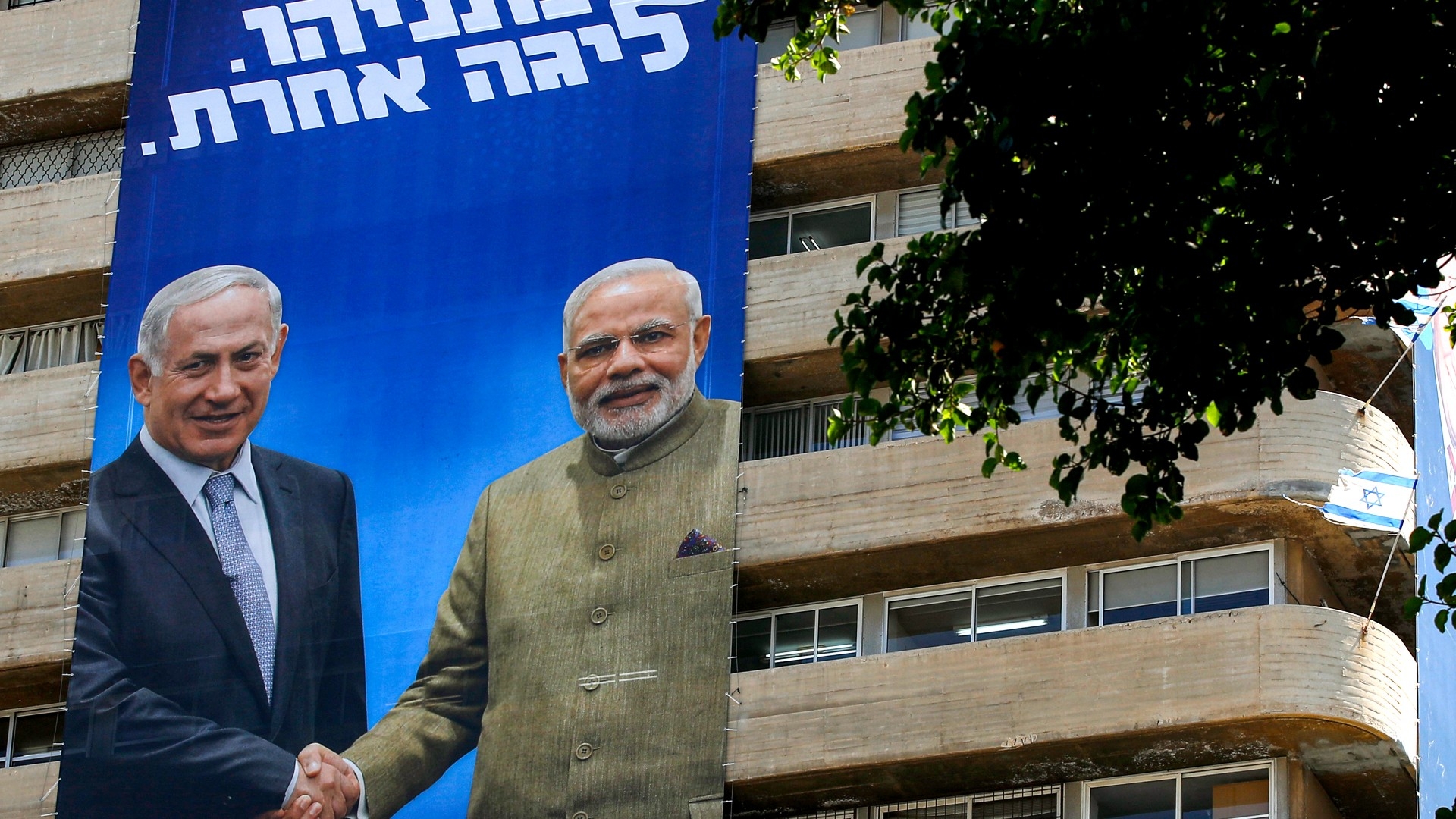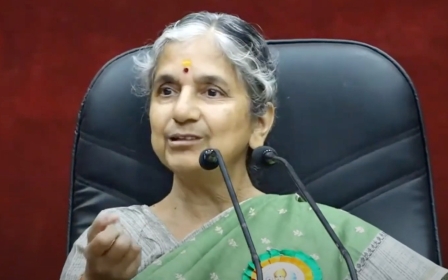Israelis rate India more favourably than any other country: Survey

Israelis hold India in higher esteem than any other country, a Pew Research Center survey has found.
The survey findings, released on Tuesday, echo growing ties between India and Israel and efforts to improve people-to-people contact between the two countries over the past decade.
Around 71 percent of Israelis hold favourable views about India while 20 percent hold unfavourable views, with nine percent choosing not to share an opinion, according to the survey.
The Israeli ambassador to India, Naor Gilon, said the findings of the report made him "very much content".
The US-based Pew Center said the findings were part of a survey that examined views of India and its political leaders both within and outside of India.
New MEE newsletter: Jerusalem Dispatch
Sign up to get the latest insights and analysis on Israel-Palestine, alongside Turkey Unpacked and other MEE newsletters
"The survey includes eight middle-income nations that Pew Research Center has not surveyed since 2019, before the outbreak of COVID-19, due to the challenges of conducting face-to-face interviews during the pandemic," Pew said.
The study concluded that views on India are generally positive across 23 countries, with a median of 46 percent of adults holding a favourable view of India, and a median of 34 percent holding unfavourable views.
Though the study said there was overwhelming favourability among Israelis for India, it found mixed results when it came to the question of Prime Minister Narendra Modi.
According to the survey, 42 percent of Israelis did not have confidence in Modi to do the right thing regarding world affairs, 41 percent viewed him favourably, while 16 percent did not answer.
Indians were also "more likely than others to believe that India's power is on the rise", with seven-in-ten Indians believing their country has become more influential of late, compared with a median of 28 percent across 19 countries who said the same in 2022.
Spying on citizens
The study comes as a new report by the Financial Times said that Modi's government was using surveillance tools bought from Israeli companies to spy on its citizens.
The surveillance system has been installed on sub-sea cable landing stations, enabling Indian security agencies to collect the personal data and communications of its 1.4 billion citizens, according to the FT.
Several international human rights groups and Indian activists have raised concerns over attacks by Modi on the press and civil society as well as declining conditions for minorities in the country.
Nonetheless, the Pew study found that 79 percent of Indians surveyed held favourable views of Modi, including 55 percent who said they held very favourable views.
Ties between India and Israeli have grown over the past decade, especially since Modi became prime minister in 2014.
In 2017, the two countries became strategic partners and co-producers of Israeli weapons. They also conduct joint military drills and host police and army training.
Between 2015-19, Indian purchases of Israeli weapons increased by 175 percent, according to The Stockholm International Peace Research Institute.
Middle East Eye delivers independent and unrivalled coverage and analysis of the Middle East, North Africa and beyond. To learn more about republishing this content and the associated fees, please fill out this form. More about MEE can be found here.




